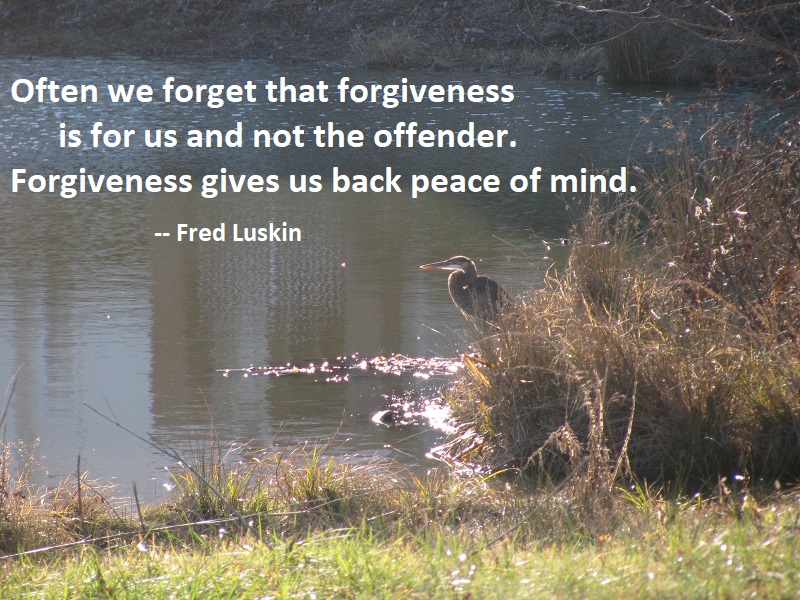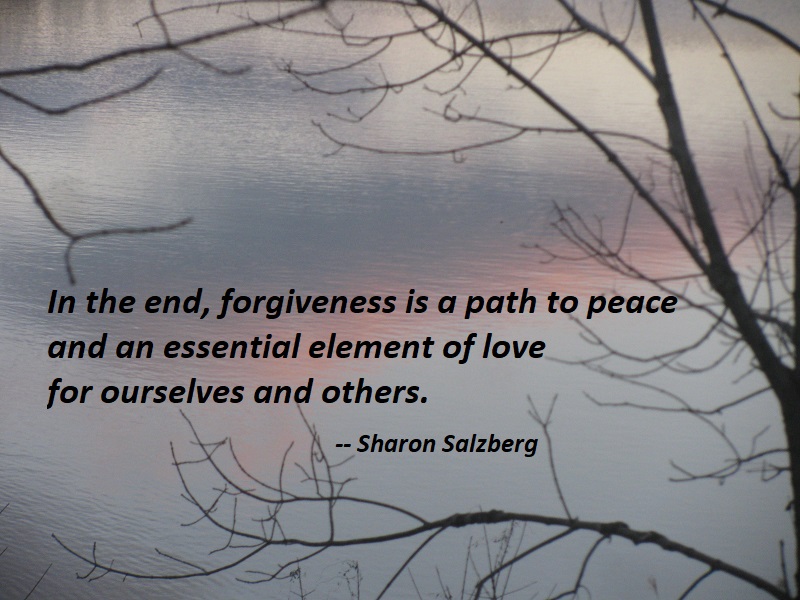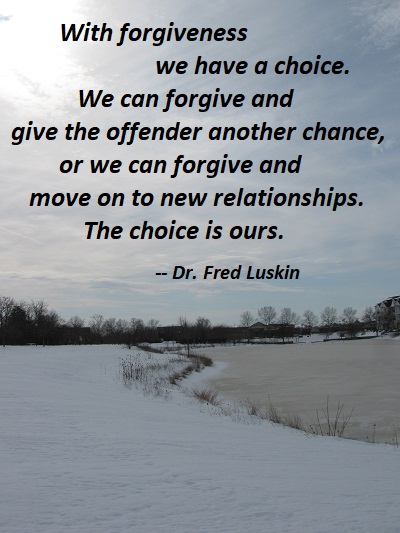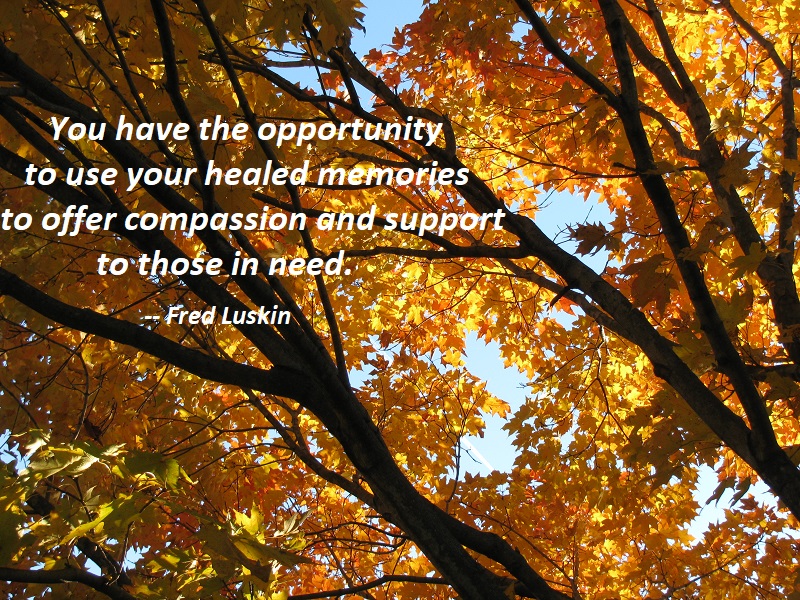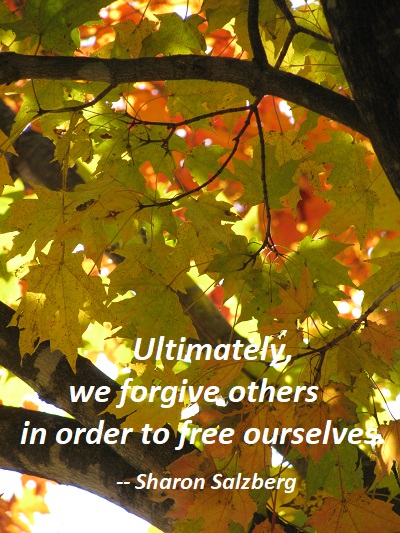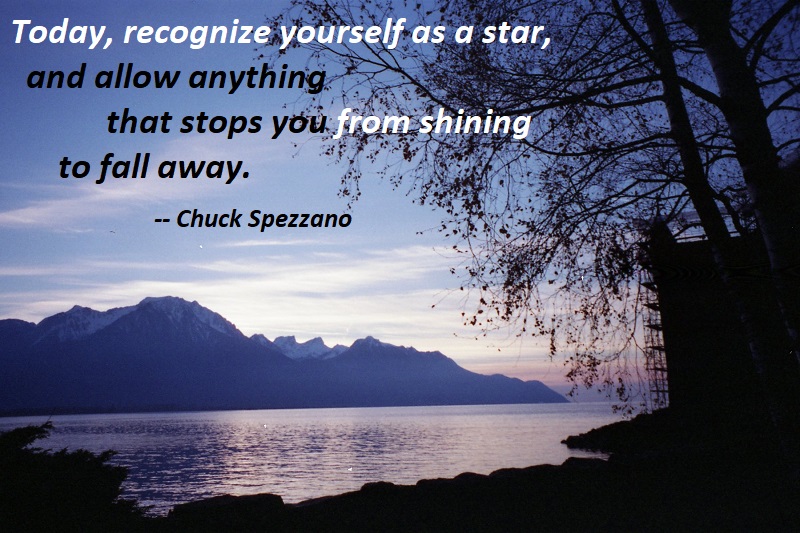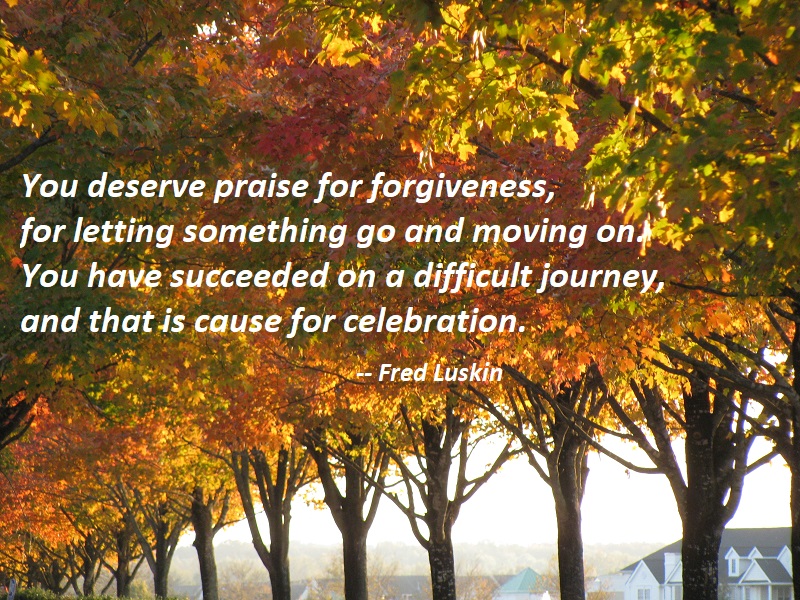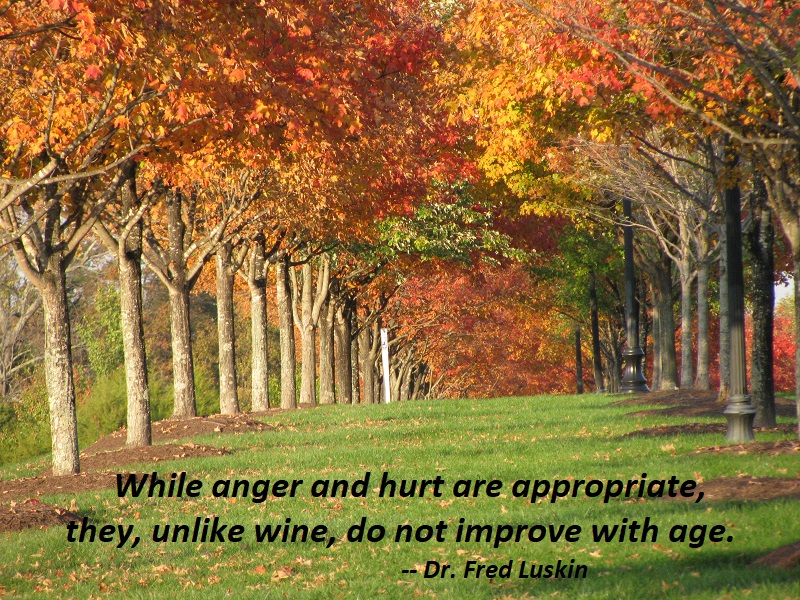Motivation to Forgive
The good news is that we are more ready to forgive than we think. Our major obstacles are not the offenses themselves but the lack of tools with which to work. We only imagine it is the nature of the offense that is unforgivable. However, if any of us look around we will find people who have forgiven the very same offense. Remember, I have worked with people who made significant progress to forgive unprovoked violence. No offense is unforgivable to everyone. If you look you can always find someone who has forgiven in a similar situation.
When you put yourself into one or both of the scenarios above you will see that the hesitancy to forgive is principally a question of motivation. We feel unmotivated because lacking such compelling reasons as wealth or death we do not know how good we will feel when we have forgiven. We wonder if it will be worth the effort. Because we lack the tools to forgive, the effort can feel overwhelming. This book gives you the tools to forgive. You still have to make the effort.
The motivation to use the techniques is primarily to regain the power you give the past to ruin your present. Often we forget that forgiveness is for us and not the offender. Forgiveness in no way condones cruelty or unkind treatment. Forgiveness gives us back peace of mind.
— Fred Luskin, Forgive for Good, p. 107-108
Photo: South Riding, Virginia, December 7, 2014
